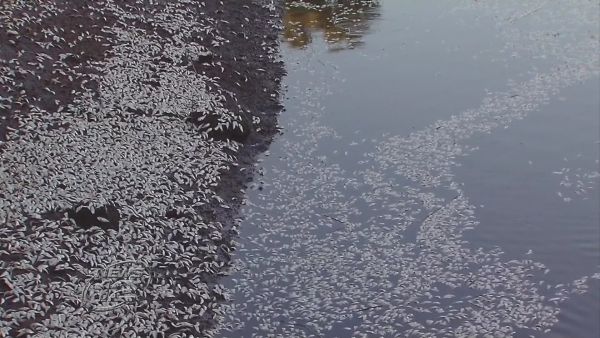NEW JERSEY – The foul stench of dead fish has enveloped part of Keansburg, New Jersey, as hundreds of thousands of dead fish washed up on beaches and clogged the water of a local creek.
Wildlife officials are calling it a natural occurrence, suggesting that unusually high water temperatures and a lack of water movement in the creek led to low oxygen concentrations there. The fish likely were fleeing from predators when they got stuck in stagnant waters, where they suffocated.
Pollution was also to blame.
“This is primarily a natural phenomenon, but it is exacerbated by polluted runoff, including fertilizers from lawns, which is why preserving stream corridors and buffers is important,” Greg Remaud, deputy director of the NY/NJ Baykeeper told PIX11, a local news channel. That runoff promotes algae growth, which also makes water less oxygenated.
Bob Considine, a spokesman for the New Jersey Department of Environmental Protection, told Reuters that the fish kill is the second to occur in the waterway this week.
Most of the fish that washed up are Atlantic menhaden — also known as peanut bunkers when they’re young — which are often used in bait or fertilizer. As eggs, the fish are carried to estuaries via ocean currents. They spend their first year in the estuary, then move back to the ocean, according to the South Atlantic Fishery Management Council.
Officials say the fish should be washed out of beaches in two tide cycles, and response teams are currently clearing them out.
Thousands of dead fish wash ashore in Keansburg,New Jersey. Whole town smells like a sewer @CarrascoTV pic.twitter.com/SN849R6Hnu
— Eric Anderson (@Skipfliggins) August 23, 2016












